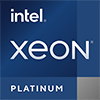
Apple M3 Max (16-CPU 40-GPU) Benchmark, Test and specs
Last updated:
The Apple M3 Max (16-CPU 40-GPU) has 16 CPU cores and can process 16 threads at the same time. The processor was presented in Q4/2023 and is based on the 3. Generation of the Apple M series series. In the Geekbench 5 benchmark, the Apple M3 Max (16-CPU 40-GPU) achieved a result of 2,150 points (single-core) or 22,736 points (multi-core).

| Name: | Apple M3 Max (16-CPU 40-GPU) |
|---|---|
| Family: | Apple M series (23) |
| CPU group: | Apple M3 (6) |
| Architecture: | M3 |
| Segment: | Mobile |
| Generation: | 3 |
| Predecessor: | Apple M2 Max (30-GPU) |
| Successor: | -- |
CPU Cores and Base Frequency
The Apple M3 Max (16-CPU 40-GPU) has 16 cores. The clock frequency of the Apple M3 Max (16-CPU 40-GPU) is 0.70 GHz (4.06 GHz). An initial performance assessment can be made using the number of CPU cores.
| CPU Cores / Threads: | 16 / 16 |
|---|---|
| Core architecture: | hybrid (big.LITTLE) |
| A-Core: | 12x P-Core |
| B-Core: | 4x E-Core |
| Hyperthreading / SMT: | No |
|---|---|
| Overclocking: | No |
| A-Core Frequency: | 0.70 GHz (4.06 GHz) |
| B-Core Frequency: | 0.74 GHz (2.75 GHz) |
Artificial Intelligence and Machine Learning
Processors with the support of artificial intelligence (AI) and machine learning (ML) can process many calculations, especially audio, image and video processing, much faster than classic processors. Algorithms for ML improve their performance the more data they have collected via software. ML tasks can be processed up to 10,000 times faster than with a classic processor.
| AI hardware: | Apple Neural Engine |
|---|---|
| AI specifications: | 16 Neural cores @ 35 TOPS |
Internal Graphics
The Apple M3 Max (16-CPU 40-GPU) has an integrated graphics that the system can use to efficiently play back videos. The Apple M3 Max (16-CPU 40-GPU) has the Apple M3 Max (40 Core) installed, which has 640 streaming multiprocessors (5120 shaders).
| GPU name: | Apple M3 Max (40 Core) |
|---|---|
| GPU frequency: | 0.39 GHz |
| GPU (Turbo): | 1.40 GHz |
| Compute units: | 640 |
| Shader: | 5120 |
| Hardware Raytracing: | Yes |
| Release date: | Q4/2023 |
| Max. displays: | 5 |
|---|---|
| Generation: | -- |
| Direct X: | -- |
| Technology: | 3 nm |
| Max. GPU Memory: | 128 GB |
| Frame Generation: | No |
Hardware codec support
Processors with integrated graphics can process video codecs faster. Support for modern codecs can significantly increase system efficiency during video playback.
| h265 / HEVC (8 bit): | Decode / Encode |
|---|---|
| h265 / HEVC (10 bit): | Decode / Encode |
| h264: | Decode / Encode |
| VP8: | Decode |
| VP9: | Decode / Encode |
| AV1: | Decode |
|---|---|
| AVC: | Decode |
| VC-1: | Decode |
| JPEG: | Decode / Encode |
Memory & PCIeThe Apple M3 Max (16-CPU 40-GPU) supports a maximum of 128 GB memory. Depending on the mainboard, the processor can use a maximum of 4 (Quad Channel) memory channels. This results in a maximum bandwidth of the main memory of 409.6 GB/s. |
|
| Memory type: | Memory bandwidth: |
|---|---|
| LPDDR5-6400 | 409.6 GB/s |
| Max. Memory: | 128 GB |
| Memory channels: | 4 (Quad Channel) |
| ECC: | No |
| PCIe: | 4.0 |
| PCIe Bandwidth: | -- |
Thermal ManagementThe Apple M3 Max (16-CPU 40-GPU) has a TDP of 57 W. Based on the TDP, the system manufacturer can and must adapt the cooling solution to the processor. |
|
|---|---|
| TDP (PL1 / PBP): | 57 W |
| TDP (PL2): | -- |
| TDP up: | -- |
| TDP down: | -- |
| Tjunction max.: | 100 °C |
Technical details
Modern production reduces the waste heat of a processor and increases its efficiency. The Apple M3 Max (16-CPU 40-GPU) is made in 3 nm and has 36.00 MB cache.
| Technology: | 3 nm |
|---|---|
| Chip design: | Chiplet |
| Socket: | -- |
| L2-Cache: | 36.00 MB |
| L3-Cache: | -- |
| AES-NI: | Yes |
| Operating systems: | macOS, iPadOS |
| Virtualization: | Apple Virtualization Framework |
|---|---|
| Instruction set (ISA): | Armv8-A (64 bit) |
| ISA extensions: | Rosetta 2 x86-Emulation |
| Release date: | Q4/2023 |
| Release price: | -- |
| Part Number: | -- |
| Documents: | -- |
Rate this processor
Benchmark results

The benchmark results for the Apple M3 Max (16-CPU 40-GPU) have been carefully checked by us. We only publish benchmark results that have been created by us or that have been submitted by a visitor and then checked by a team member. All results are based on and fullfill our benchmark guidelines.
Screenshots:
Screenshots:
Cinebench 2024 (Single-Core)
The Cinebench 2024 benchmark is based on the Redshift rendering engine, which is also used in Maxon's 3D program Cinema 4D. The benchmark runs are each 10 minutes long to test whether the processor is limited by its heat generation.

|
Intel Core i9-14900KS
24C 32T @ 6.20 GHz |
||

|
Apple M3 Pro (12-CPU 18-GPU)
12C 12T @ 4.06 GHz |
||
|
|
Apple M3 Max (16-CPU 40-GPU)
16C 16T @ 4.06 GHz |
||

|
Apple M3 Max (14-CPU 30-GPU)
14C 14T @ 4.06 GHz |
||

|
Apple M3 Pro (11-CPU 14-GPU)
11C 11T @ 4.06 GHz |
||

|
Intel Core i9-14900KF
24C 32T @ 6.00 GHz |
||

|
Intel Core i9-14900K
24C 32T @ 6.00 GHz |
||
Cinebench 2024 (Multi-Core)
The Multi-Core test of the Cinebench 2024 benchmark uses all cpu cores to render using the Redshift rendering engine, which is also used in Maxons Cinema 4D. The benchmark run is 10 minutes long to test whether the processor is limited by its heat generation.

|
Apple M1 Ultra (64-GPU)
20C 20T @ 3.20 GHz |
||

|
Intel Core i9-13900
24C 32T @ 5.60 GHz |
||

|
Intel Core i9-13900F
24C 32T @ 5.60 GHz |
||
|
|
Apple M3 Max (16-CPU 40-GPU)
16C 16T @ 4.06 GHz |
||

|
Intel Core i7-13700KF
16C 24T @ 5.40 GHz |
||

|
Intel Core i7-13700K
16C 24T @ 5.40 GHz |
||

|
AMD Ryzen 9 7900X3D
12C 24T @ 5.60 GHz |
||
Cinebench R23 (Single-Core)
Cinebench R23 is the successor of Cinebench R20 and is also based on the Cinema 4 Suite. Cinema 4 is a worldwide used software to create 3D forms. The single-core test only uses one CPU core, the amount of cores or hyperthreading ability doesn't count.

|
Intel Core i9-12900
16C 24T @ 5.10 GHz |
||

|
Intel Core i9-12900F
16C 24T @ 5.10 GHz |
||

|
AMD Ryzen 5 7600X
6C 12T @ 5.30 GHz |
||
|
|
Apple M3 Max (16-CPU 40-GPU)
16C 16T @ 4.06 GHz |
||

|
Apple M3 Max (14-CPU 30-GPU)
14C 14T @ 4.06 GHz |
||

|
Apple M3 (8-GPU)
8C 8T @ 4.06 GHz |
||

|
Apple M3
8C 8T @ 4.06 GHz |
||
Cinebench R23 (Multi-Core)
Cinebench R23 is the successor of Cinebench R20 and is also based on the Cinema 4 Suite. Cinema 4 is a worldwide used software to create 3D forms. The multi-core test involves all CPU cores and taks a big advantage of hyperthreading.

|
Intel Core i5-13600K
14C 20T @ 5.10 GHz |
||

|
Intel Core i5-13600KF
14C 20T @ 5.10 GHz |
||

|
AMD Ryzen 9 3950X
16C 32T @ 4.00 GHz |
||
|
|
Apple M3 Max (16-CPU 40-GPU)
16C 16T @ 3.60 GHz |
||

|
Intel Core i7-12700KF
12C 20T @ 4.70 GHz |
||

|
Intel Core i7-12700K
12C 20T @ 4.70 GHz |
||

|
Intel Core i9-12900T
16C 24T @ 3.40 GHz |
||
Geekbench 5, 64bit (Single-Core)
Geekbench 5 is a cross plattform benchmark that heavily uses the systems memory. A fast memory will push the result a lot. The single-core test only uses one CPU core, the amount of cores or hyperthreading ability doesn't count.

|
AMD Ryzen 7 7700
8C 16T @ 5.30 GHz |
||

|
AMD Ryzen Threadripper 7970X
32C 64T @ 5.30 GHz |
||

|
Intel Core i9-14900HX
24C 32T @ 5.80 GHz |
||
|
|
Apple M3 Max (16-CPU 40-GPU)
16C 16T @ 4.06 GHz |
||

|
Apple M3 (8-GPU)
8C 8T @ 4.06 GHz |
||

|
Apple M3 Max (14-CPU 30-GPU)
14C 14T @ 4.06 GHz |
||

|
Apple M3
8C 8T @ 4.06 GHz |
||
Geekbench 5, 64bit (Multi-Core)
Geekbench 5 is a cross plattform benchmark that heavily uses the systems memory. A fast memory will push the result a lot. The multi-core test involves all CPU cores and taks a big advantage of hyperthreading.

|
Intel Xeon Gold 6312U
24C 48T @ 2.80 GHz |
||

|
AMD EPYC 7453
28C 56T @ 3.25 GHz |
||

|
AMD EPYC 9174F
16C 32T @ 4.15 GHz |
||
|
|
Apple M3 Max (16-CPU 40-GPU)
16C 16T @ 3.60 GHz |
||

|
AMD Ryzen Threadripper 3970X
32C 64T @ 3.80 GHz |
||

|
AMD EPYC 7402P
24C 48T @ 3.20 GHz |
||

|
Intel Xeon Gold 6442Y
24C 48T @ 2.00 GHz |
||
Geekbench 6 (Single-Core)
Geekbench 6 is a benchmark for modern computers, notebooks and smartphones. What is new is an optimized utilization of newer CPU architectures, e.g. based on the big.LITTLE concept and combining CPU cores of different sizes. The single-core benchmark only evaluates the performance of the fastest CPU core, the number of CPU cores in a processor is irrelevant here.

|
Intel Core i9-14900K
24C 32T @ 6.00 GHz |
||

|
Qualcomm Snapdragon X Elite (X1E-84-100)
12C 12T @ 4.20 GHzNot verified |
||

|
Apple M3 Pro (12-CPU 18-GPU)
12C 12T @ 4.06 GHz |
||
|
|
Apple M3 Max (16-CPU 40-GPU)
16C 16T @ 4.06 GHz |
||

|
Apple M3 (8-GPU)
8C 8T @ 4.06 GHz |
||

|
Apple M3 Max (14-CPU 30-GPU)
14C 14T @ 4.06 GHz |
||

|
Apple M3 Pro (11-CPU 14-GPU)
11C 11T @ 4.06 GHz |
||
Geekbench 6 (Multi-Core)
Geekbench 6 is a benchmark for modern computers, notebooks and smartphones. What is new is an optimized utilization of newer CPU architectures, e.g. based on the big.LITTLE concept and combining CPU cores of different sizes. The multi-core benchmark evaluates the performance of all of the processor's CPU cores. Virtual thread improvements such as AMD SMT or Intel's Hyper-Threading have a positive impact on the benchmark result.

|
Apple M2 Ultra (60-GPU)
24C 24T @ 3.50 GHz |
||

|
Apple M2 Ultra (76-GPU)
24C 24T @ 3.50 GHz |
||

|
Intel Xeon w9-3475X
36C 72T @ 3.00 GHz |
||
|
|
Apple M3 Max (16-CPU 40-GPU)
16C 16T @ 3.60 GHz |
||

|
Intel Core i9-13900KS
24C 32T @ 5.60 GHz |
||

|
AMD Ryzen 9 7950X
16C 32T @ 5.20 GHz |
||

|
Intel Core i9-14900F
24C 32T @ 5.40 GHz |
||
Cinebench R20 (Single-Core)
Cinebench R20 is the successor of Cinebench R15 and is also based on the Cinema 4 Suite. Cinema 4 is a worldwide used software to create 3D forms. The single-core test only uses one CPU core, the amount of cores or hyperthreading ability doesn't count.

|
Intel Core i7-10700
8C 16T @ 4.80 GHz |
||

|
Intel Core i7-10700F
8C 16T @ 4.80 GHz |
||

|
Intel Core i7-7820X
8C 16T @ 4.50 GHz |
||
|
|
Apple M3 Max (16-CPU 40-GPU)
16C 16T @ 4.06 GHz |
||

|
AMD Ryzen 7 5700U
8C 16T @ 4.30 GHz |
||

|
AMD Ryzen 7 PRO 4750GE
8C 16T @ 4.30 GHz |
||

|
AMD Ryzen 7 4700GE
8C 16T @ 4.30 GHz |
||
Cinebench R20 (Multi-Core)
Cinebench R20 is the successor of Cinebench R15 and is also based on the Cinema 4 Suite. Cinema 4 is a worldwide used software to create 3D forms. The multi-core test involves all CPU cores and taks a big advantage of hyperthreading.

|
Intel Core i9-12900H
14C 20T @ 3.80 GHz |
||

|
Intel Xeon Gold 6148
20C 40T @ 3.00 GHz |
||

|
Intel Core i9-10850K
10C 20T @ 4.80 GHz |
||
|
|
Apple M3 Max (16-CPU 40-GPU)
16C 16T @ 3.60 GHz |
||

|
Intel Core i9-11900KF
8C 16T @ 4.80 GHz |
||

|
Intel Core i9-11900K
8C 16T @ 4.80 GHz |
||

|
Intel Core i5-13400F
10C 16T @ 3.90 GHz |
||
iGPU - FP32 Performance (Single-precision GFLOPS)
The theoretical computing performance of the internal graphics unit of the processor with simple accuracy (32 bit) in GFLOPS. GFLOPS indicates how many billion floating point operations the iGPU can perform per second.

|
Apple M2 Ultra (60-GPU)
Apple M2 Ultra (60 Core) @ 1.40 GHz |
||

|
Apple M1 Ultra (64-GPU)
Apple M1 Ultra (64 Core) @ 1.30 GHz |
||

|
Apple M1 Ultra (48-GPU)
Apple M1 Ultra (48 Core) @ 1.30 GHz |
||
|
|
Apple M3 Max (16-CPU 40-GPU)
Apple M3 Max (40 Core) @ 1.40 GHz |
||

|
Apple M2 Max (38-GPU)
Apple M2 Max (38 Core) @ 1.40 GHz |
||

|
Microsoft XBox Series X
AMD Custom Radeon Graphics (XBox Series X) @ 1.83 GHz |
||

|
Apple M3 Max (14-CPU 30-GPU)
Apple M3 Max (30 Core) @ 1.40 GHz |
||
Cinebench R15 (Single-Core)
Cinebench R15 is the successor of Cinebench 11.5 and is also based on the Cinema 4 Suite. Cinema 4 is a worldwide used software to create 3D forms. The single-core test only uses one CPU core, the amount of cores or hyperthreading ability doesn't count.

|
Intel Core i5-13500
14C 20T @ 4.80 GHz |
||

|
AMD Ryzen 7 5800X
8C 16T @ 4.70 GHz |
||

|
AMD Ryzen 9 5900X
12C 24T @ 4.80 GHz |
||
|
|
Apple M3 Max (16-CPU 40-GPU)
16C 16T @ 4.06 GHz |
||

|
Intel Core i7-1280P
14C 20T @ 4.80 GHz |
||

|
Intel Core i9-11900KF
8C 16T @ 5.30 GHz |
||

|
Intel Core i9-11900K
8C 16T @ 5.30 GHz |
||
Cinebench R15 (Multi-Core)
Cinebench R15 is the successor of Cinebench 11.5 and is also based on the Cinema 4 Suite. Cinema 4 is a worldwide used software to create 3D forms. The multi-core test involves all CPU cores and taks a big advantage of hyperthreading.

|
Intel Xeon Platinum 8160M
24C 48T @ 2.60 GHz |
||

|
Intel Xeon Platinum 8160T
24C 48T @ 2.60 GHz |
||

|
Intel Xeon W-2295
18C 36T @ 3.80 GHz |
||
|
|
Apple M3 Max (16-CPU 40-GPU)
16C 16T @ 3.60 GHz |
||

|
AMD Ryzen 7 7700X
8C 16T @ 5.20 GHz |
||

|
Intel Core i7-12700KF
12C 20T @ 4.70 GHz |
||

|
Intel Core i7-12700K
12C 20T @ 4.70 GHz |
||
CPU performance per watt (efficiency)
Efficiency of the processor under full load in the Cinebench R23 (multi-core) benchmark. The benchmark result is divided by the average energy required (CPU package power in watts). The higher the value, the more efficient the CPU is under full load.

|
Apple M1
7,759 CB R23 MC @ 18 W |
||

|
Apple M2
8,558 CB R23 MC @ 20 W |
||

|
Apple M2 (8-GPU)
8,558 CB R23 MC @ 20 W |
||
|
|
Apple M3 Max (16-CPU 40-GPU)
24,028 CB R23 MC @ 57 W |
||

|
Apple M2 Pro (10-CPU 16-GPU)
12,125 CB R23 MC @ 30 W |
||

|
AMD Ryzen 7 7735HS
13,766 CB R23 MC @ 35 W |
||

|
Apple M2 Pro (12-CPU 19-GPU)
14,855 CB R23 MC @ 40 W |
||
Performance for Artificial Intelligence (AI) and Machine Learning (ML)
Processors with the support of artificial intelligence (AI) and machine learning (ML) can process many calculations, especially audio, image and video processing, much faster than classic processors. The performance is given in the number (trillions) of arithmetic operations per second (TOPS).

|
Qualcomm Snapdragon X Elite (X1E-80-100)
12C 12T @ 1.00 GHzNot verified |
||

|
Qualcomm Snapdragon X Elite (X1E-84-100)
12C 12T @ 1.00 GHzNot verified |
||

|
Samsung Exynos 2400
10C 10T @ 3.20 GHz |
||
|
|
Apple M3 Max (16-CPU 40-GPU)
16C 16T @ 0.70 GHz |
||

|
Apple M3 Pro (12-CPU 18-GPU)
12C 12T @ 0.70 GHz |
||

|
Apple M3 (8-GPU)
8C 8T @ 0.70 GHz |
||

|
Apple M3 Max (14-CPU 30-GPU)
14C 14T @ 0.70 GHz |
||
Benchmarks

Cinebench 2024 (SC)
272 entries
272 entries

Cinebench 2024 (MC)
271 entries
271 entries

Cinebench R23 (SC)
586 entries
586 entries

Cinebench R23 (MC)
565 entries
565 entries

Geekbench 5 (SC)
2,488 entries
2,488 entries

Geekbench 5 (MC)
2,461 entries
2,461 entries

Geekbench 6 (SC)
1,755 entries
1,755 entries

Geekbench 6 (MC)
1,703 entries
1,703 entries

Cinebench R20 (SC)
656 entries
656 entries

Cinebench R20 (MC)
604 entries
604 entries

FP32 SP (iGPU)
2,042 entries
2,042 entries

Cinebench R15 (SC)
1,106 entries
1,106 entries

Cinebench R15 (MC)
1,101 entries
1,101 entries

CPU performance per watt (efficiency)
109 entries
109 entries

AI / ML Performance
119 entries
119 entries
Description of the processor
The Apple M3 Max is available in two different versions: one with 16 CPU cores and 40 GPU cores and one with 14 CPU cores and 30 GPU cores. Both models are currently available in the Apple MacBook Pro 14 and Apple MacBook Pro 16.The Apple M3 Max (16-CPU 40-GPU) has 12 large P-cores that clock at a very low 0.7 GHz. If necessary, the P cores can clock at up to 4.06 GHz. The four smaller E-cores are slightly more efficient and clock at 0.74 GHz. The E cores can also increase their clock frequency to up to 2.75 GHz if necessary.
While Apple has previously always installed at least the same number of E-cores in relation to the P-cores in the M processors, the Apple M3 Max (16-CPU 40-GPU) is the first to use a configuration that has significantly more P cores.
Also on board is the new AI computing unit, which has 16 neural cores and has a computing power of up to 35 TOPS. The AI computing unit is used in image and video processing as well as in combination with the GPU in graphics-heavy applications.
Apple has significantly revised the integrated graphics with the third generation of Apple M processors. This now supports the free AV1 video codec (decoding) as well as the calculation of light rays via the hardware (ray tracing). Apple also changed the SoCs memory logic. Using the dynamic cache, the common memory shared by the CPU and GPU can be used much more efficiently.
A maximum of 128 GB of storage is possible with the Apple M3 Max. This is connected via 4 memory channels and thus has a very high memory bandwidth of 409.6 GB per second. The processor itself supports PCIe 4.0 and can quickly connect external devices using an unknown number of PCIe services. The SoC is manufactured in 3 nm at TSMC in Taiwan.
Popular comparisons
back to index




